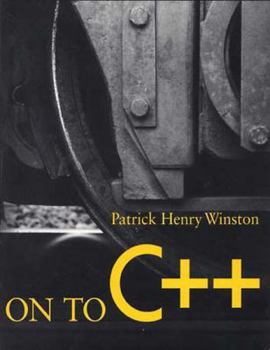On to C++
Customer Reviews
Rated 5 starsBest, well written, most concise C++ book out there.
After going through several C++ books, I switched back to Winston's 3/4" paperback from 1994. In brief, it is a very well written, concise, and clear book well suited for those that would like to learn C++ on their own. It is leaps and bounds better than any programming book I have ever owned. The idea of learning C++ by building a simple train car program may seem hokey, but it allows you to get a solid groundwork in which...
0Report
Rated 5 starsBest Introduction to C++
In my experience, On to C++ is by far the best introduction, and perhaps one of the best books in general, on C++. It is extremely well written and allows one to move from procedural programming to object oriented programming very quickly, especially if you are already familiar with C.It is not comprehensive, and is not meant to be, but covers all of the basics of the language quite well. The use of essentially the same...
0Report
Rated 5 starsClear and thorough
Of the many C++ books available on the market, this one does a remarkable job in introducing a beginner to the language. Everything is clearly defined, with all possible scenerios that can arise when using a concept/function. A common problem with programming books is that the student is often left to learn syntax and concepts from the examples of code given, and the accompanying explainations are usually terrible. This...
0Report
Rated 5 starsGreat as a first "learn by yourself" C++ book
On To C++ by P.H. Winston is a great textbook for those who wish to learn C++ by themselves. It is a nice surprise to see a book which is very efficient in teaching C++ and OOP (Object Oriented Programming) in an intuitive manner that does not overload the reader's little brain.On To C++ is easy enough for those who don't know any proramming language, yet it is not too slow for readers who already know other programming...
0Report
Rated 5 starsThe Perfect Book for C++ Students
When I learned C++, this is the book I started with, and have recommended it to students of C++ since then. It gives clear examples of how and why language constructs work, and using a running example throughout the book (building a train), it allows students to build on their knowledge as they cover the material. The only drawback: the book is slightly out of date at this point (it does not cover namespaces or C++ 3.0...
0Report












